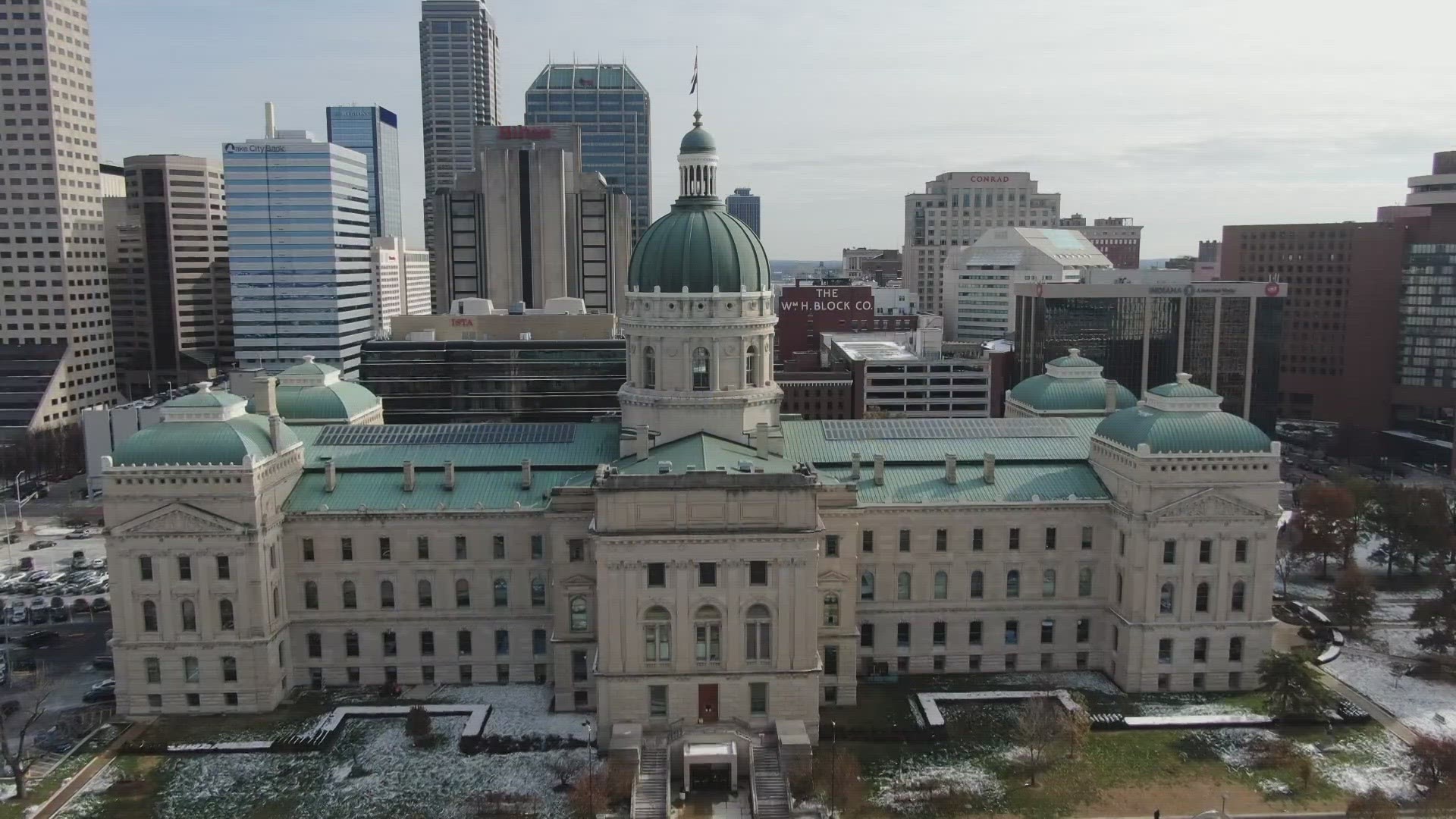INDIANAPOLIS — Indiana's near-total abortion ban, which was supposed to take effect Tuesday, is technically still on hold due to a couple of legal issues in the courts.
But Indiana Planned Parenthood clinics have already stopped providing abortions. The clinics remain open, but their abortion care has ended.
Services stopped Tuesday at midnight, nearly a year to the day since Gov. Eric Holcomb signed SB1, a near-total abortion ban, even in the earliest stages of pregnancy.
"Today is a dark day for millions of Hoosiers and others who rely on Indiana Planned Parenthood for abortion care," Planned Parenthood Indiana CEO Rebecca Gibron said at a news conference.
Although they will no longer provide abortion care, Planned Parenthood vows to provide help with access to abortion outside of Indiana.
"We will help arrange their travel and their care in other states, and they will have to travel hundreds of miles to reclaim ownership of their bodies and futures," OB/GYN Dr. Katie McHugh said.
"We will continue to fight as far as we can fight every battle that needs to be fought on this front in the state of Indiana," Gibron said.
The legal fight isn't over. Lawsuits remain, challenging the ban. And technically, the state's abortion ban is still on hold as of Tuesday.
"It is currently off," said Stevie Pactor, a staff attorney with the Indiana ACLU. "Right now, there are two separate injunctions that are still in effect, barring the application of SB1."
The law is not enforceable until the state Supreme Court certifies its decision from June, lifting a block on the ban. That process takes at least 30 days, and Tuesday would have been the first day it could be certified by the judges.
Also, the ACLU on Monday filed another legal challenge that stalls the process, too, asking for a rehearing.
"There was a new filing asking the Supreme Court to reconsider the opinion that it issued, basically asked the Supreme Court essentially 'hold off on that,'" Pactor said. "Give us a rehearing to the extent we can go back down to the district court and litigate exactly the issues that were flagged in the Supreme Court's opinion."
When the ban does take effect officially, it does have exceptions. Abortions are allowed in cases of rape or incest up to 10 weeks, although many women are unaware they're pregnant at that point.
They will also be allowed up to 20 weeks for fatal fetal anomalies or to protect the life of the mother. The law limits abortion care to hospitals only.
Dr. Amy Caldwell, an OB/GYN at IU Health, spoke about hospital services during Tuesday's news conference.
"We will continue to provide abortion care to as many people as we legally can," Caldwell said. "We do anticipate there will be many people we cannot take care of, and we are committed to doing what we can for those patients under the legal restrictions that are now in place."
Gibron said Planned Parenthood's clinics saw a 25% increase in people traveling into Indiana for abortion care over the past year, since the Dobbs decision.
Now, they have a navigation team in place to help Hoosiers travel out of state. Meanwhile, the lawsuits to stop the ban continue.
"Planned Parenthood of Indiana will not back down," Gibron said. "We will be courageous in the courts and courageous in the clinics."
Attorneys for the ACLU said there is no timeline for when the court's certification of its decision might happen or when they could either grant or deny the ACLU's petition on a rehearing.
Indiana Right to Life's President and CEO Mike Fichter released a statement late Tuesday that says, in part, "The status of the Indiana law remains unclear. We are hopeful that the Indiana Supreme Court quickly affirms that the new law's in effect, ending 95% of abortions in our state."

